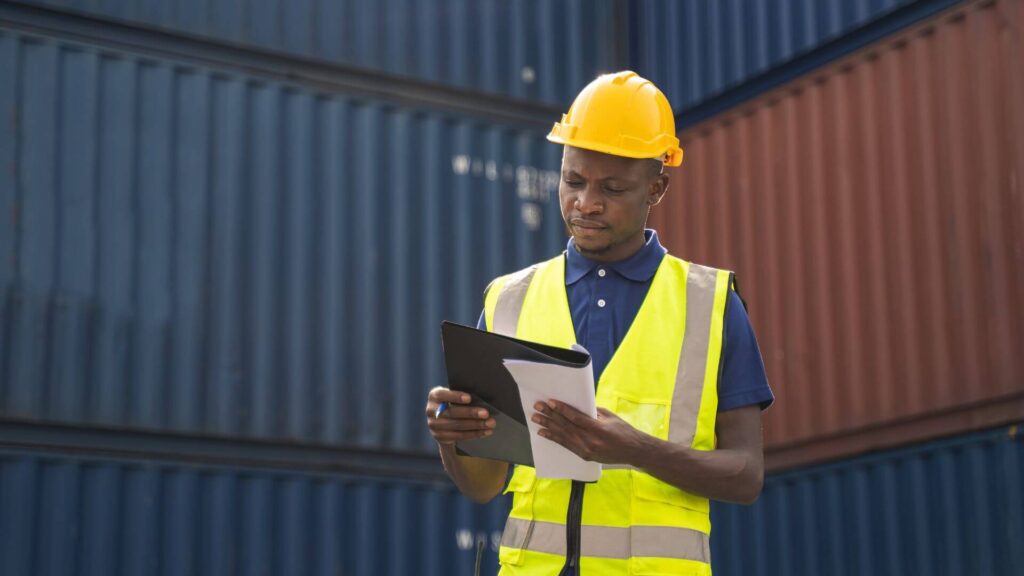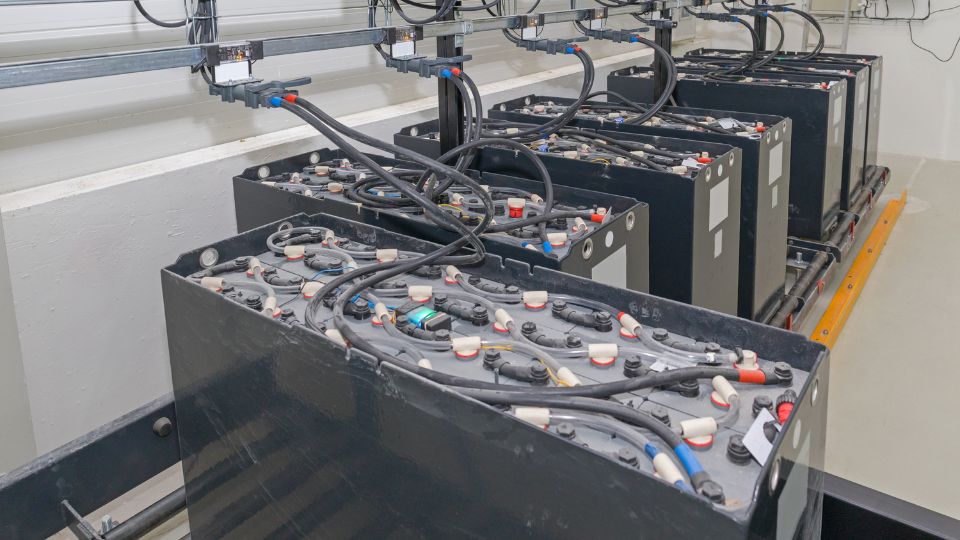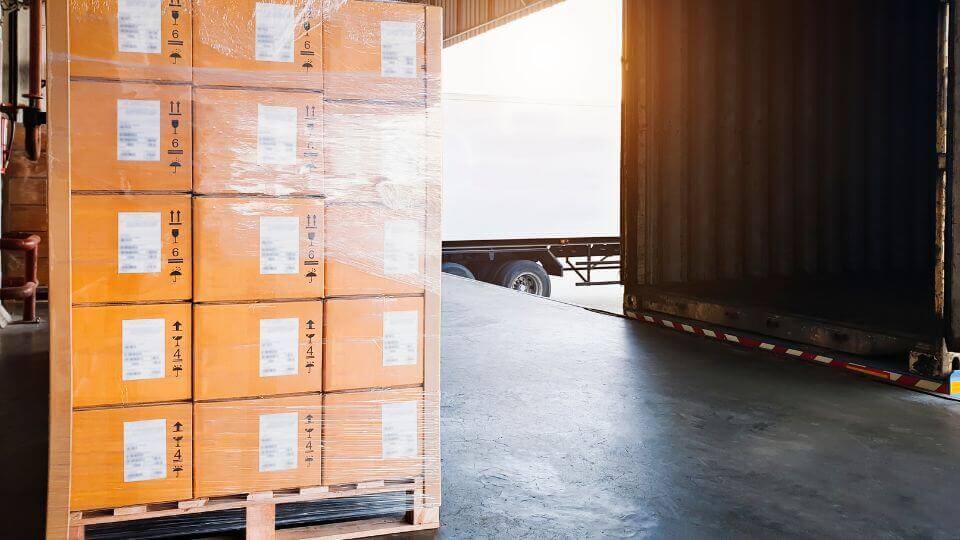So, are you looking to become a customs broker in the United States?
Customs brokers are individuals empowered by the U.S. Customs and Border Protection (CBP) to assist importers and exporters in navigating the Federal requirements governing the nation’s trade. Due to the rise in the number of goods shipped into and out of the country in recent years, customs brokers have become a vital part of the national and global shipping industry.
If you’re interested in international trade, becoming a customs broker is a promising career path in 2024. Brokers who work with the CBP on behalf of importers and exporters are invaluable in terms of the knowledge, expertise, and efficiency they bring to the equation.
This article will explain in detail what a U.S. customs broker is, how to get a customs broker license, what it takes to become one, and how to get started in this financially and personally rewarding field.

What is a Customs Broker in the U.S.?
The United States Customs and Border Protection licenses individuals, partnerships, associations, and businesses to act as customs brokers, whose job it is to help importers and exporters follow the law when bringing and taking foreign commodities into or out of the country. As intermediates, they play a vital role and assist their clients in understanding and negotiating the particulars of conducting business internationally from the United States.
What are the Responsibilities of a U.S. Customs Broker?
As liaisons between shippers and government agencies, customs brokers help you organize and submit the necessary documentation, verify the payment of taxes and duties, and ensure that shipments meet all regulatory and legal requirements. The main duties of a U.S. customs broker include the following:
- Information Submission:
When it comes to dealing with the U.S. CBP, U.S. customs brokers serve as essential intermediaries for importers and exporters. In their capacity, they are assigned the responsibility of maintaining transaction documents, financial records through rigorous bookkeeping, and copies of power of attorney. Not only is this data critical for preventing illegal trade practices, but it is also indispensable for keeping domestic and international trade running smoothly.
- Expertise in Regulations:
It is important for U.S. customs brokers to be knowledgeable about entry procedures, admissibility requirements, classification, valuation, and duty rates. Customs brokers are expected to settle various fees and duties on behalf of their clients, handle penalties and refund requests, and manage all money-related matters swiftly and efficiently. They must also expertly deal with any taxes or other expenses associated with imported goods.
- License Requirement for Corporations:
In the United States, corporations, partnerships, and associations involved in customs-related business must hold a U.S. customs broker license. Furthermore, at least one officer, partner, or associate within these entities must also obtain an individual license to qualify for the company’s license.
Eligibility to Become a U.S. Customs Broker
Despite the challenges involved in becoming a successful customs broker, the career can be a rewarding experience in many ways, including a handsome paycheck (salaries range from $74,000 to $98,000) and the opportunity to work with people from around the world. There are some requirements unique to the United States if you want to work as a customs broker there:
- U.S. Citizenship: First and foremost, you must be a United States citizen.
- Age Requirement: You need to be at least 21 years old to meet the minimal age requirement.
- Non-Government Employment: You cannot be employed as a Federal Government worker to be eligible for a U.S. customs broker license.
- Good Moral Character: Demonstrating good moral character is an essential requirement for aspiring U.S. customs brokers.
Becoming a U.S. Customs Broker: The Step-by-Step Process
Now that we have established the groundwork, let’s get into the specifics of what it takes to get a customs broker license and to become a customs broker in the United States:
1. Pass the U.S. Customs Broker License Examination:
To become a customs broker in the United States, you must first successfully complete the U.S. Customs Broker License Examination. The purpose of this test is to evaluate how well you understand customs laws, export policies, and related issues. It is a thorough examination of your abilities as a potential candidate for a U.S. customs broker job.
2. Submit a U.S. Customs Broker License Application:
After passing the exam, you can apply for a customs broker license from U.S. CBP. This application is a request for a license to practice as a customs broker in the United States.
3. Approval by CBP:
CBP will give your application careful consideration after you submit it. The agency will conduct a thorough evaluation of your credentials and history to determine if you match the prerequisites.
Your eligibility for a customs broker license in the United States depends heavily on the results of this assessment. Learn more about the services offered by Logos Logistics and discover how we can assist you in international trade, including 3PL warehousing, e-commerce fulfillment, freight brokerage, and contract logistics.

The Significance of Licensing in the U.S.
Achieving the status of licensed U.S. customs broker is a major step forward in your professional life. With this license, you can take on a special and significant position in the complicated field of U.S. foreign trade.
For starters, you can legally represent importers and exporters before U.S. Customs and Border Protection if you hold a valid U.S. Customs broker license. You will be able to operate as the go-between for commercial dealings with CBP, making sure everything is above board.
U.S. customs brokers play an integral part in ensuring the legitimacy of international trade. This means that it is your job to use your knowledge to ensure that the items being imported or exported are in accordance with the rules and regulations set forth by the Federal Government. Tariffs, free trade agreements, product categories, and entry requirements are all covered by these rules. You can help stop contraband from entering or leaving the country by double-checking and examining these details.
Having a U.S. customs broker’s license also allows you to facilitate the free movement of products inside the country. This goes beyond simple product regulation to include streamlining the operational aspects of international trade. The import and export processes benefit from your knowledge of entry procedures, classification, and value, which helps to eliminate unnecessary delays and bottlenecks. This, in turn, contributes to the effectiveness of the country’s trading activities, which are important to its economic well-being.
Risk management and risk reduction are two of the most significant duties performed by U.S. customs brokers. Importers and exporters can benefit from your knowledge of up-to-date customs legislation and trade compliance requirements. This knowledge is particularly important when engaging in international trade since the smallest mistake can have far-reaching economic and legal implications.
The success of the American economy depends in large part on the work of customs brokers in the United States. The United States’ GDP and the number of people employed directly benefit from a robust trading environment. A U.S. customs broker job, therefore, significantly contributes to economic growth and job creation across industries by facilitating the orderly and lawful transport of commodities.
Career Prospects as a U.S. Customs Broker
As discussed briefly before, becoming a licensed U.S. customs broker opens doors to a wide range of career prospects within the United States. The U.S. is a global hub for international trade, making the role of a customs broker here especially vital in international trade. Here are some of the promising career paths you can explore:
1. Working for U.S. Customs Brokerage Firms:
Many U.S. customs brokers go on to work for established brokerage firms. These firms specialize in providing import and export services, and they often hire licensed brokers to handle their clients’ needs.
2. Entrepreneurship:
As a licensed U.S. customs broker, you have the option to start your own customs brokerage business within the United States. This path allows you to build your brand and serve clients directly.
3. Consulting:
Some U.S. customs brokers choose to work as consultants, offering their expertise to businesses looking to navigate the intricacies of international trade.
4. Government Positions:
While you cannot be a current Federal Government employee to become a U.S. customs broker, there are opportunities to work with government agencies in roles related to trade and customs compliance, contributing greatly to the nation’s regulatory efforts.
Ongoing Education and Professional Development in the U.S.
Becoming a customs broker in the United States is only the first step in an exciting and rewarding career. To excel in this area and stay current with the ever-changing legislation and trade practices in the U.S., ongoing education and professional growth are vital. Follow these guidelines to sharpen your skills:
1. Participation in Industry Associations:
Joining industry associations and organizations related to customs and international trade within the United States can provide you with valuable networking opportunities and access to valuable resources.
2. Additional Certifications:
Consider pursuing additional certifications or training in specific areas of international trade, such as import and export compliance, customs regulations, or trade finance, tailored to fit the U.S. trade regulatory landscape.
3. Continuous Learning:
Stay informed on the latest developments in trade and customs within the United States by reading industry publications, attending seminars, and participating in webinars.
4. Mentorship:
Seek out experienced U.S. customs brokerage professionals who can serve as mentors and provide guidance as you progress in your career as a customs broker.
Conclusion
A customs broker is an invaluable partner to businesses engaged in international trade. They work with companies to simplify the process of importing and exporting goods and provide assistance and advice to clients on a range of international trade matters.
Those interested in international trade and who wish to aid traders in understanding and complying with U.S. customs procedures could find it enjoyable to pursue a career as a customs broker. You can have a rewarding career in this profession if you are qualified, pass the U.S. Customs Broker Licensing Examination, and receive CBP approval for your licensing applications.









